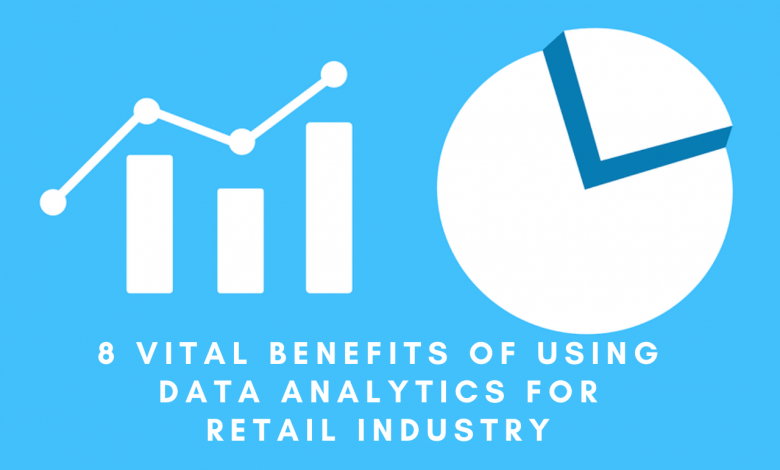
The retail industry is one of the most lucrative, fast-paced, ever-evolving, and intensely competitive sectors today. In the wake of the Covid-19 pandemic, the challenges and complexities faced by retailers have increased furthermore. In order to stay relevant and flourish, retail businesses need to have the much-required extra-edge on various fronts of the business. Be it for personalized marketing, customer experience, customer retention, or brand promotions, the precision-based insights provided by data analytics can be extremely helpful. Big data and analytics are helming retail companies in multiple productive ways, to traverse through the competitive landscape. Here are the top 8 benefits of using data analytics for retail:–
-
Predict Purchase Patterns
All your retail marketing strategies are ultimately aimed at the expected buying tendencies of consumers in the near future. With data analytics, you can gain definitive insights on these purchase patterns with a concrete data-based backing. Big data can really help you map the uncertain terrain of consumer behaviour, and adapt to it proactively.
-
Efficient Logistics
The inherent challenges of the retail sector not only include front-of-the-end customer interaction and sales, but also the massive back-end operations. Whether it is warehouse management, inventory optimization, shipments tracking, or streamlining logistics, data analytics for retail can play a big role in making your back-end processes more efficient. Investing in data analytics can help you save a lot of time, money, and resources spent on retail logistics.
-
Aids in Price Optimization
Ensuring that your product prices are optimized in real-time has become a must for any successful retailer today. No matter what your product categories are, the customer always has multiple choices today. If your prices are not competitive enough, you will lose out on a major chunk of price-sensitive customers. By implementing data analytics, you can ensure that your prices are well-optimized at all times.
-
Enables Tailored Marketing Strategies
Personalization is the buzzword in modern-day retail. Approaching your target audience with tailored solutions is the modus operandi of every retail marketer. But how much can you rely on the judgement of your marketing team with regards to personalization? Data analytics can yield valuable insights on personalized marketing strategies, based on purchase history, browsing trends, wish-lists, and so on. Hence, the freebies you offer and customized messages you send will have a much better impact.
-
Helps with Retail Audits
Conducting regular audits of both in-store merchandise and warehouse stock is crucial for the successful running of any retail business. Owing to the repository of data and subsequent insights, data analytics can be very helpful for proper inventory management. Whether you own a multi-city retail chain or a small-scale retail business, your audits are better streamlined with big data.
-
Detects and Curtails Retail Fraud
Be it stock pilferage, misuse of card details, or fraudulent returns/exchange, the detection and curtailment of retail fraud is very important. Data analytics for retail can help in setting checks and balances in your system (both online and offline) to immediately highlight any shortcomings and help you nip them in the bud.
-
Helps with Merchandising
A decade or so earlier, retail merchandising used to be the stronghold of professional merchandisers only. But off late, retail marketers have been brainstorming and implementing various merchandising strategies on their own. What has brought about this change is the advent of data analytics in the retail segment. In-store promotional activities and merchandise-presentation can be a lot more alluring with solid data-backing.
-
Demand Forecasting
There are multiple factors that can affect consumer demands in the near future- industry trends, buying habits, preferences, new offerings of competitors, price fluctuations, socio-economic changes, seasonal changes, and so on. Data analytics takes all the necessary factors into account to yield accurate demand forecasting insights for retailers. Therefore it becomes a lot easier to helm retail operations, as well as chart out successful retail marketing campaigns centred on the demand forecast for the quarter.
Conclusion
If we analyze carefully, it is evident that the Retail Industry is a hub of voluminous data. This includes daily operations data, warehouse data, logistics data, and sales reports, to foot-fall trends, conversion reports, transactional data, loyalty data, customer feedback reports, and so on. Employing cutting-edge, AI-driven data analytics to properly segment this data, analyze it, and derive valuable insights is the ideal way to make your mark as a successful retailer.